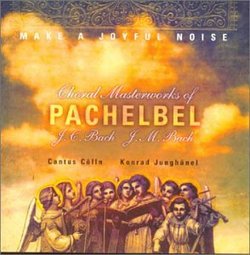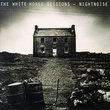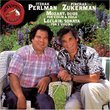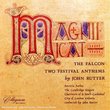| All Artists: Pachelbel, Cantus Colln, Junghanel Title: Make a Joyful Noise Members Wishing: 0 Total Copies: 0 Label: Bmg Int'l Release Date: 10/11/1994 Album Type: Import Genre: Classical Styles: Opera & Classical Vocal, Historical Periods, Baroque (c.1600-1750) Number of Discs: 1 SwapaCD Credits: 1 UPC: 054727730528 |
Search - Pachelbel, Cantus Colln, Junghanel :: Make a Joyful Noise
 | Pachelbel, Cantus Colln, Junghanel Make a Joyful Noise Genre: Classical
|
Larger Image |
CD DetailsSimilarly Requested CDs
|
CD ReviewsSuperb Motets! Superb Choir! Giordano Bruno | Wherever I am, I am. | 12/20/2007 (5 out of 5 stars) "Amazonian shoppers who've encountered my reviews of Renaissance and Baroque vocal music might remember that I'm often skeptical of performances by choirs rather than one-on-a-part ensembles, both for stylistic and recording-technological reasons. This performance by Cantus Colln, under Konrad Junghanel, belongs in a different category. The 16 motets by Johan Pachelbel and two of the older members of the Bach family are extremely suitable for choral treatment. The sound quality is exceptionally clear and realistic. Best of all, Cantus Colln is a choir of top-notch professional singers such as Maria Christine Kiehr and Gerd Turk; I'd crawl out on the limb and say this is the best choir I've ever heard. The CD is not new; it was released in 1994, and I'm disappointed in myself for not having heard it before.
Pachelbel and the two Bachs (Johan Christoph & Johan Michael) were Johan Sebastian's most obvious influences, even more clearly so than the more commonly attributed influence of Buxtehude. Bach wrote in a local tradition, that of Thuringia, though he certainly expanded that tradition to world-scope. These motets are on the whole less complex than JS's, but full of brilliant counterpoint and luscious harmony, and quite a lot more joyful, less spiritually anguished. Pachelbel was immensely popular in his time and one can understand why. What's hard to understand is the subsequent neglect of his and other 17th C master's works throughout the centuries since. If you happen to speak German, by the way, you'll find it marvelously easy to hear the texts. There's a good deal to be said in favor of using singers of the composer's language in choruses. The consonants ring true, and the precision of vowels does wonders for tuning. Cantus Colln is flawless in its articulation, a model for all choristers to emulate." |

 Track Listings (16) - Disc #1
Track Listings (16) - Disc #1








